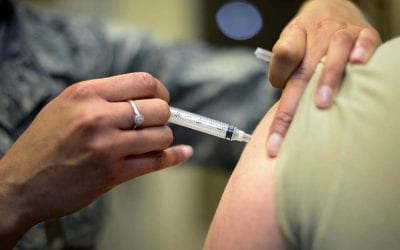Airline flight attendants are the country’s unsung heroes in our current “War on Terrorism.” Immediately after the World Trade Center and Pentagon terrorism events, the media was filled with stories about “real heroes” – rescuers, police and firefighters who risked their lives to save workers in those buildings.
Those gallant emergency workers were racing up stairs into harm’s way while the office workers were filing down the stairs away from danger as quickly as possible. The firefighters, EMTs and police deserve every accolade they receive.
Firefighters and the police are trained for danger. When they arrive, they can see the broad outlines of what theyare facing. They do it every day. Protecting us.
Flight attendants are another unstudied group of workers who, as we are discovering, are faced with potential danger every time they go to work. Where once their main purpose was to provide knowledgeable assistance in case of an emergency landing, their new reality is much more nerve-wracking.
What once was a mini-world of giddy tourists and grumpy businessmen flying from here to there, is now a war zone.
Today, every time a plane takes off, every time a passenger stands up and walks toward the cockpit, and every time a passenger ducks behind their seat to pick through carryon luggage out of sight, flight attendants are on high alert.
These new terrorism dangers are unknown. So unknown, in fact, that the FBI, the FAA and other government organizations still can’t predict where, when or how a future attack may take place.
We, as passengers, grumble about the inconvenience of waiting in long security lines and having our luggage and bodies probed. Many of our fellow travelers, almost 20 percent, have opted out of air travel completely.
Meanwhile, flight attendants don’t have that option. They have to go back to work. Pilots are being barricaded inside their cockpits, given stun guns and may get training to carry firearms.
What are flight attendants getting? Captains now tell their crew, before they lock themselves in the cockpit, “You’re on your own.”
So far the only public reward for their work has been a series of layoffs and a photo of a flight attendant with a bandaged hand, bitten by a terrorist. That attentive and vigilant flight attendant together with another physically stopped a man from lighting a fuse to a bomb that would have downed the aircraft in the middle of the Atlantic.
Let’s get our priorities straight.
Flight attendants were the most consistent source of information on 9/11 when, at the risk of their lives, they phoned airline operations to let them know about the hijackings including seat numbers and hijacker descriptions. Flight attendants were most certainly involved with the attack on the terrorists on the United Airlines flight that crashed in the fields of Pennsylvania rather than into a building on Pennsylvania Avenue. Flight attendants were the front line troops when faced with a fanatic bomber over the Atlantic.
I, for one, believed that the airlines would immediately initiate self defense training and clamor for additional protective devices. At a minimum, airlines should train flight attendants in the basics of self-defense and ways to deal with unruly passengers. This training should be as important a part of their training as learning how to open emergency doors and deploy escape slides.
Baggage screeners will soon be earning a government minimum of $30,000 a year with all the government perks of medical care, vacations and insurance. Federal air marshals, when hired will be make between $30,000 and $80,000.
Meanwhile flight attendants, the airlines’ real front-line troops, are starting at a salary of about $18,000 a year, or less, and don’t have a prayer of seeing $30,000 for at least three years. Vacations during that time are paltry and time on “reserve” (waiting around in case another flight attendant is sick or gets stuck in traffic) seems nonstop.
For years, we have heard the flight attendant mantra, “We are here for your safety.” Now those words ring more true than ever. And safety, today, means far more than helping with oxygen masks, securing the overhead compartments, checking seat belts and opening emergency doors.
Let’s face it. When we fly, flight attendants are our first line of defense while the plane is in the air. They may be serving peanuts, pretzels and drinks, but they are constantly on watch and alert from the time they check IDs while boarding the aircraft until touchdown at the final destination.
Today’s flight attendant reality saddles them with what amounts to nonstop battle stress from an unidentified, furtive and unpredictable enemy.
I, for one, thank them for their service. All of us who fly should thank them as well.

Charlie Leocha is the President of Travelers United. He has been working in Washington, DC, for the past 14 years with Congress, the Department of Transportation, and industry stakeholders on travel issues. He was the first consumer representative to the Advisory Committee for Aviation Consumer Protections appointed by the Secretary of Transportation from 2012 through 2018.

